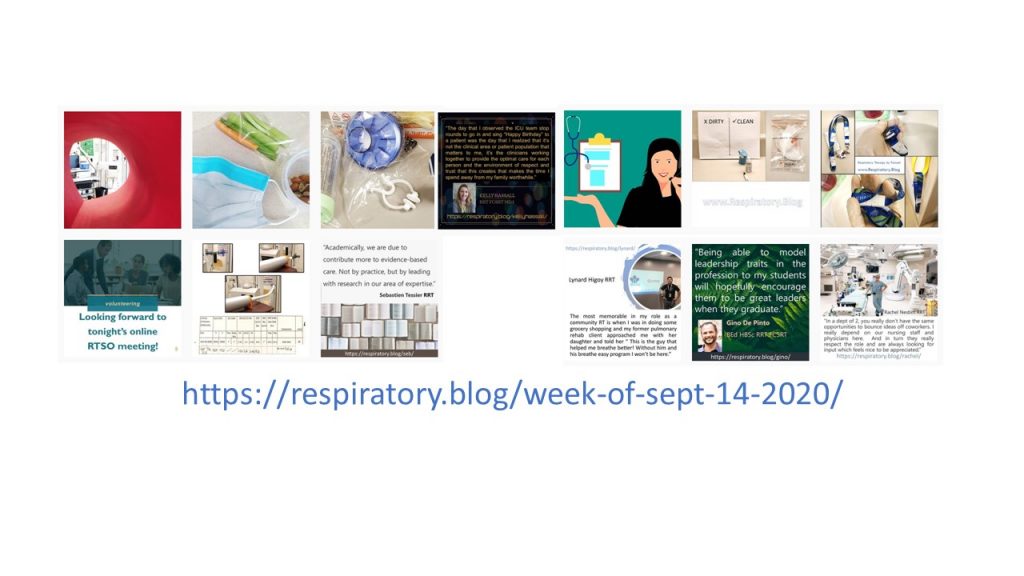
Did you miss a blog post? Here is a list of the popular posts over the last week!
Farzad Refahi
Sept. 20, 2020
Respiratory Therapy by Farzad Refahi
With a goal of improving the life of healthcare providers as individuals and as clinicians.

Did you miss a blog post? Here is a list of the popular posts over the last week!
Farzad Refahi
Sept. 20, 2020
From the conversations initiated by yesterday’s post, a few points came to surface. If you want to check out yesterday’s post, click on the following link: https://respiratory.blog/sept152020/
Firstly, we do many things to keep our equipment and clothing clean that we don’t even realize. For example, we use pens all the time and we tend to subconsciously clean them between patients rooms but not even realize it.
Secondly, there are always little and simple steps and hacks that we can adopt to help us along the way. For example, when I was deployed to the ICU, some of my responsibilities, besides patient care, included the preparation and cleaning of some equipment. Here is one simple trick: put a few cleaning wipes in a sample bag and place it beside the intubation kit/glidescope, or even inside/outside of the “procedure” room. This way, the bag is ready to go, and by closing the sample bag, the wipes will not dry out. I recall the number of times I had walked in the isolation room and I use the LAST cleaning wipe in the container! By taking the required items with me, life became more efficient and safe.
Here is an example for the PFT lab setting: I have left a little marker on the countertop so I can easily identify the ‘clean’ and ‘dirt’y side. After using the equipment I put them on the dirty side and that way I don’t have to ever doubt if the item has been wiped clean or not. I have noticed that patients also feel more comfortable and safe knowing that there is a clear cleaning system in place. Yes, a very simple step but on a busy day, it can go a long way.
What are some of the easy step, systems, or tricks that have helped you along the way?
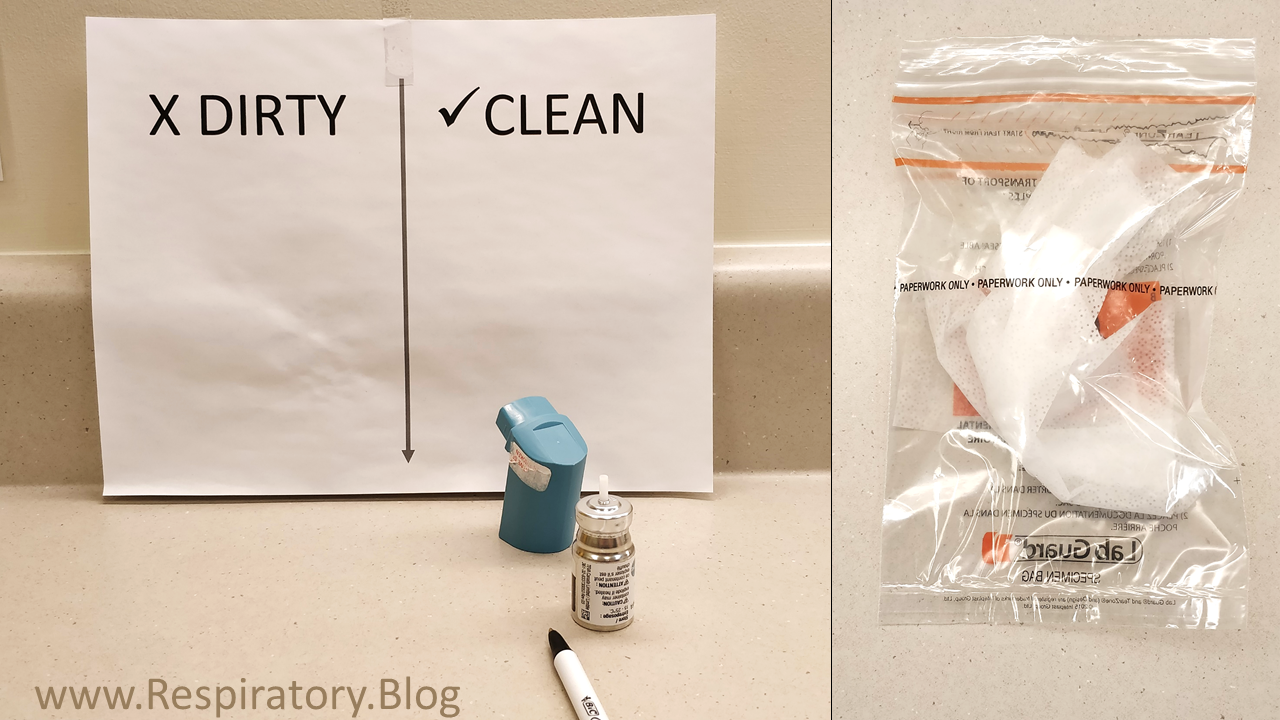
Farzad Refahi
Sept. 16, 2020
https://respiratory.blog/sept162020/
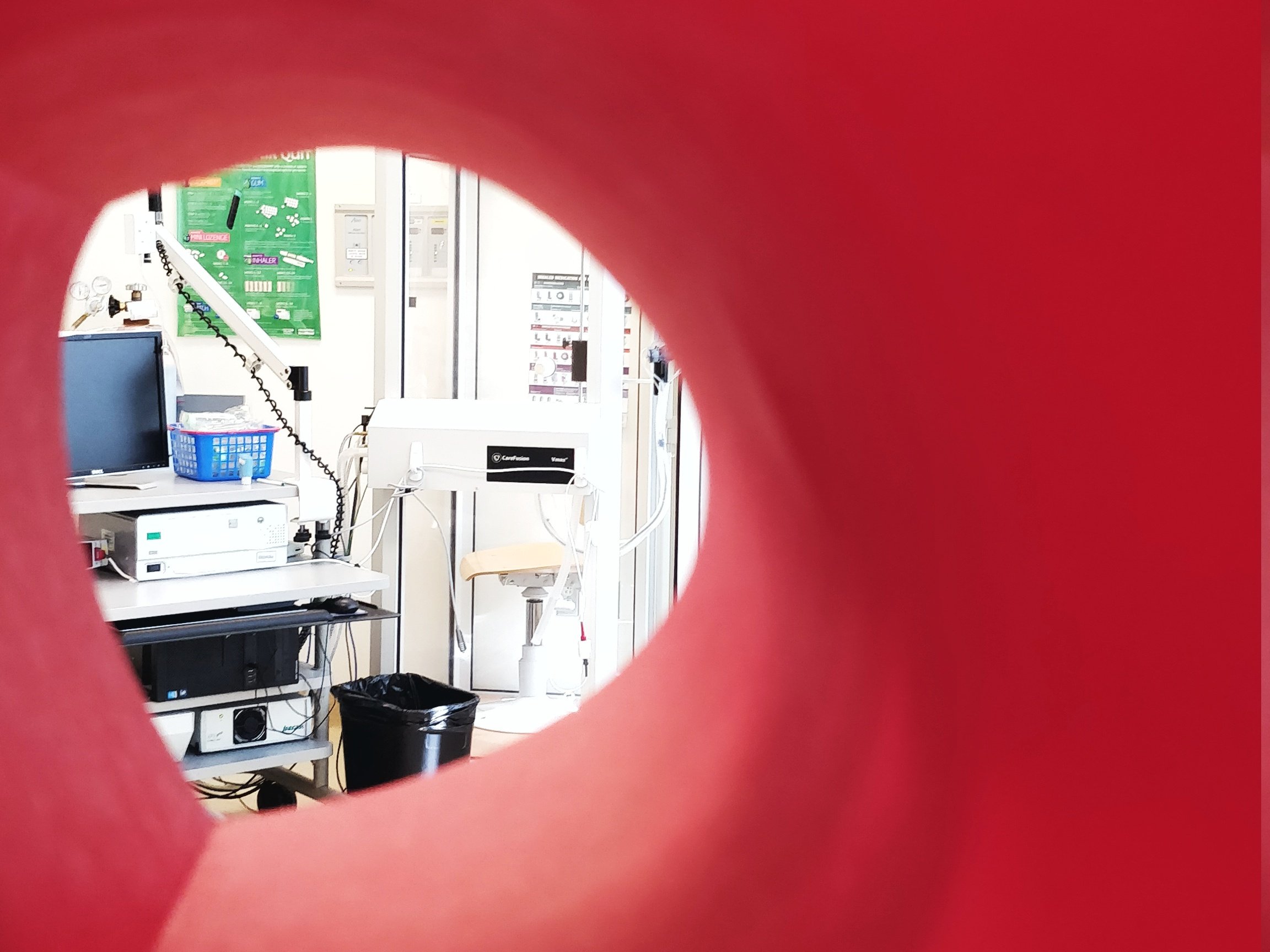
“I am surprised you are doing breathing tests!”
“Is it safe to do this test?”
“It must be very difficult for you to work at this time!”
“Is this clean?”
“Do you reprocess those?”
Roughly once a week, I have a patient who has shown up for their pulmonary function testing (PFT) despite their anxiety about being inside a hospital. They tend to register early in the hospital however won’t come to the waiting area until a minute or two before the required time. They also prefer to stand as they don’t want to sit in a ‘hospital’ chair.
When I guide them to the PFT lab, they seem anxious and need to ask a few questions before they are comfortable enough to do the test.
I know that I wouldn’t be able to start the test until they have the answers and they feel okay to start. Also, it is more difficult to establish rapport with someone who is tense. Performance, accuracy and reproducibility of values are also greatly influenced by an anxious mindset. What I have tried to do is listen and answer as many of their questions as possible. I spend a few minutes talking about the transition of our hospital’s PFT lab, which includes how our hospital shut down the lab until the local rates were low. I also explain that the hospital actively books fewer tests per day so waiting areas don’t get busy and that there would be more time between the tests for cleaning. Inside the body box and all the surfaces that people have touched or been near have been wiped with appropriate solutions. Mouthpieces are not reprocessed and are tossed out after each use.
I understand that we all get busy with our schedules and there is always lots to do. But we need to put in the time and effort to slow down and to actively listen. It is important to not take things personally. The patient is not questioning your care and ability to clean. They are worried about their health and need honest answers and reassurance. Although we spend a lot of time cleaning, the patient doesn’t see that.
I really hope that ordering physicians and clinicians take the time to explain the test, the reasoning, the cleaning process that hospitals and labs perform, and to answer any questions the patients may have. If the ordering clinician is unsure or unfamiliar, I strongly recommend that they contact the PFT labs for more information. I would be more than happy to have clinicians visit the lab so they better understand the process.
What are your thoughts? What steps do you take to make your patients feel more at ease?
Farzad Refahi
Sept. 14, 2020
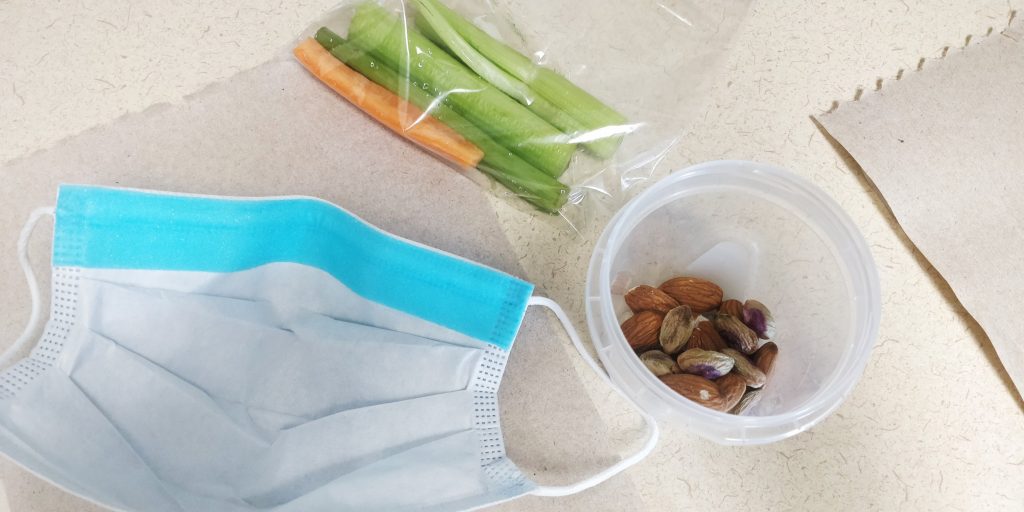
Recently I have begun eating healthier. By better looking after myself, I can better look after others (which includes my patients). All of this with by taking baby steps of course!
Drinking more water is the hard step as I didn’t hydrate myself frequently throughout the day. Now here comes the best part! Healthy snacks! Veggies and healthy fats are now part of my snacks. To make the process easier, which in turn can improve the chance of success, food preparation is strongly recommended. The night before, my wife and I make bags with celery and carrot sticks and containers of almonds. Along with a previously cooked and frozen lunch, I just need to grab my meal and snacks in the mornings!
Without this preparation, a slight temptation or laziness may lead to a Tim Horton’s coffee and a Timbit… or two… let’s be honest, I can easily have four to half a dozen of those to myself. While a cup of coffee and a few Timbits can be an occasional treat, it is not recommended as a frequent snack. To my followers outside of North America, check out Tim Horton’s website to have a better look at Timbits (small and round doughnuts/donuts): http://company.timhortons.com/ca/en/menu/timbits.php
While drinking more water and having small healthy snacks may be a small step, it is a noticeable improvement for me.
What are some of the things you have recently done to improve your self-care? What are some things you would like to do?
Farzad Refahi
September 11th, 2020
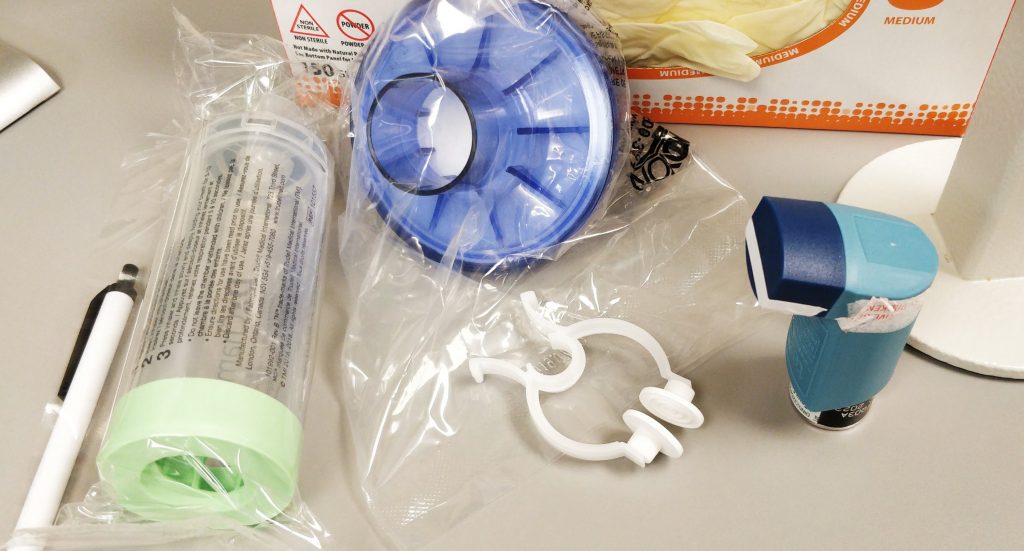
Equipment is ready to go before calling in the next person!
I don’t have many extra or other items on the countertops and desks. This is so things don’t get contaminated with droplet and airborne particles. Also, with limited items on surfaces, it makes the clinical setting more organized and less distracting for patients.
What are some of your practices?
Farzad Refahi
September 9th, 2020